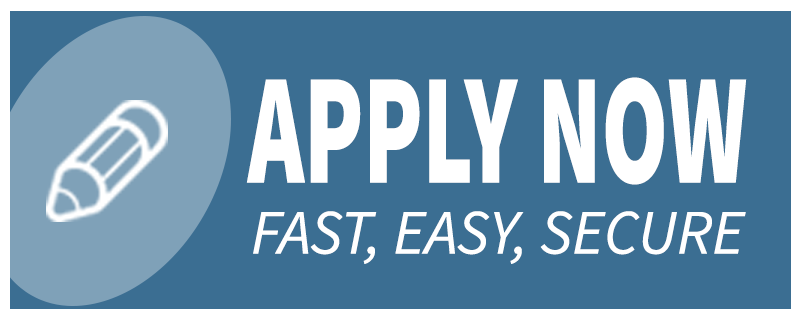Mortgage Rule Changes - AGAIN
2017-10-17 | 06:38:31
Today, as I (and many others) have been mentioning from time to time in recent months, the Office of the Superintendent of Financial Institutions Canada (OSFI) published the final version of Guideline B-20 - Residential Mortgage Underwriting Practices and Procedures. The revised Guideline, which comes into effect on January 1, 2018, applies to all federally regulated financial institutions.
The Mortgage Industry has seen a lot of changes in the last number of years, all designed to limit the amount people can borrow. During this time, Real Estate prices across Canada have increased in most areas and rapidly in some. It is this rapid increase, in some areas, that has pushed the government to act on trying to curtail borrowing.
The most recent changes in October 2016 and then some Provincial changes in April 2017 have done two things.
1- The October changes created a run on Real Estate in the GTA and surrounding area that had never been seen, driving prices skyward as people feared they would be priced out.
2- Provincial Changes in April came at a time when the October changes had taken full hold and the market began cooling.
Now that the market has priced in the previous changes, OSFI is bringing in more - effective January 1, 2018. Get ready for a BUSY 2 months in the Real Estate market, whether you are buying or refinancing, because people will be chomping at the bit to get in before they can't get into the market or refinance.
What are the new changes? For the sake of time, I am only going to talk about the big one that will affect everyone.
OSFI is setting a new minimum qualifying rate, or "stress test," for uninsured mortgages.
- Guideline B-20 now requires the minimum qualifying rate for uninsured mortgages to be the greater of the five-year benchmark rate published by the Bank of Canada or the contractual mortgage rate +2%.
So, what does THAT mean? A lot actually....(Insured Mortgages are those that you pay Default Insurance on, typically referred to as CMHC Insurance. Uninsured Mortgages don't require Default Insurance. Most with 20% down would fall under the latter category) and things are about to get way more complicated for borrowers.
Example.
Let's use an individual who makes $100,000/year, has zero debt and good credit moving forward.
Regardless of how much you make, if you have less than 20% down - these changes won't affect what you qualify for and you will continue to qualify at the Mortgage Qualifying Rate. Today that rate is 4.89% and I expect it to increase again very shortly. Keep in mind, the Big Banks hold onto this key rate and use it when calculating penatlies. Give that a quick thought...
Have 20% down, or more, and don't require Default Insurance? This is where it gets muddy. Not only will borrowers have to decide between the appropriate Mortgage Product and Lender, they may also have to decide between, qualifying or not, or deferring to a Mortgage Product or Lender that doesn't give them their best overall options , just to qualify. Your licenced Mortgage Agent/Broker will be a key player in giving proper advice on your Mortgage Financing moving forward.
So....WHAT DOES ALL OF THAT MEAN?!?!?!?

Well, if you're that individual above and buying a house and Bank A offers you 3.39% and Bank B offers you 3.49% it sounds simple enough on the surface, Bank A is offering the better rate so you pick Bank A - right? Well, not really, or maybe you do or you don't.... See, with Bank A you will qualify for slightly more mortgage money, however; their terms and conditions may cost you more in the long run, despite the lower rate. Keep in mind, you will be qualified at 2% higher than the rate offered. (Those who are putting 20% down may be wondering if they should put 19.9% down and pay the Default Insurance to qualify at 4.89% (today) for a larger mortgage (and you might!). Confused more? Wait until you find out Bank A charges penalties based on the posted rate which typically costs consumers more money should they ever have to break the mortgage....or some other slick term or condition that limits future options.
What about refinancing? This is where it can get tougher for borrowers to make the right choice. Using our same individual and assuming a 30 year Amortization and $6,000/year in property taxes, no condo fees, refinancing to the max under the new rules. This individual will qualify for $5,000 more with Bank A than Bank B. In some refinance cases, that could be the difference between clearing up high interest consumer debt - or not. Our individual has no debt, however; the average Canadian does. For whatever reason that $5,000 is needed (in our example), if it really is NEEDED, the borrower could be forced to choose a lesser product that could be costlier in the long run.

Mind Blown Yet? A lot of people in the Mortgage Industry will be working to figure out these changes over the next little while. Fact is, if you were, or are, looking to do something with your mortgage in the next two years, now is probably the time to get some hard facts on what these new changes will mean specifically for you down the road. Oh and...
Just wait until this starts affecting property values. Remember our individual above? Under today's rules they can qualify for roughly $590,000 in mortgage money with more than 20% down, dependant on taxes etc. Under the new rules, assuming the EXACT same mortgage rate, $470,000 in mortgage money is roughly what they would qualify for. A $120,000 difference which will (likely) adversly shift property values.

This is like kicking an already rolling ball down a hill and will affect everything attached to Real Estate - EVERYTHING. Given that Real Estate is a big driver in our economy, this could create a situation within Canada that pushes us towards a Rece....okay, I won't swear. I think you can fill in the blanks on that.
I didn't even touch on renewals, you can bet that banks will be watching what you can afford and offer higher rates if they know you can't qualify to move your mortgage elsewhere.....
If you, or anyone you know, have any questions or concerns about your Mortgage Options feel free to contact me at 905-377-1684 or drop me an email at greenlee.j@mortgagecentre.com
John Greeenlee, Accredited Mortgage Professional
Check out my Social Media Feeds for Updates
Facebook.com/jgreenlee.agent
Twitter - @jgreenlee_mtg






